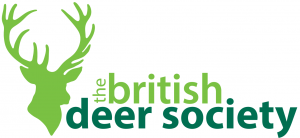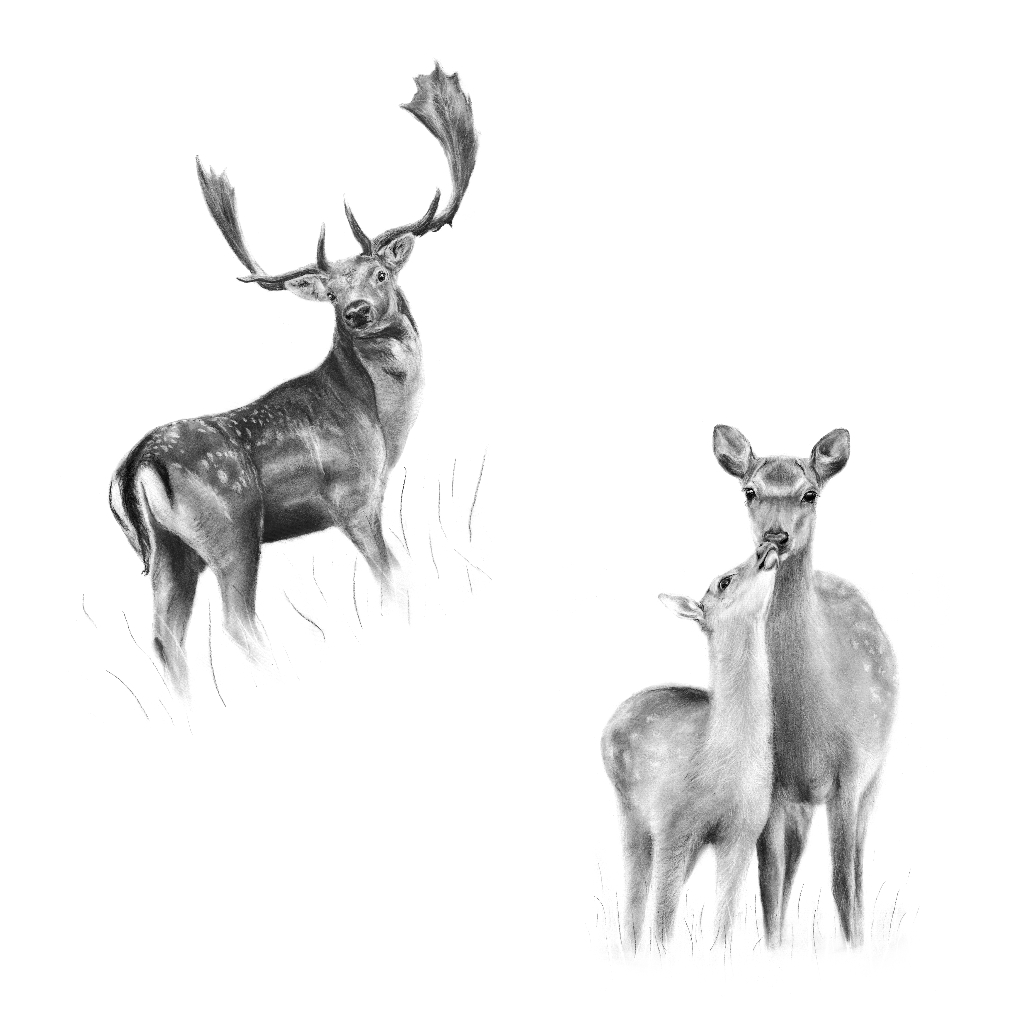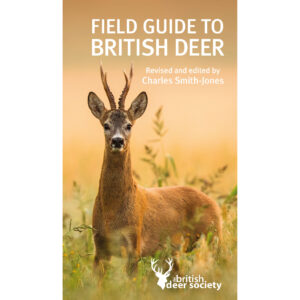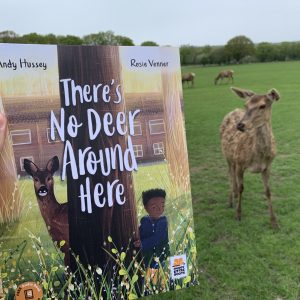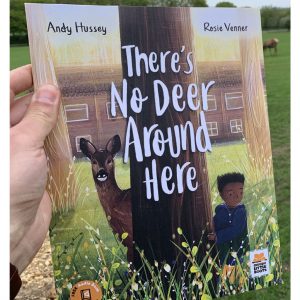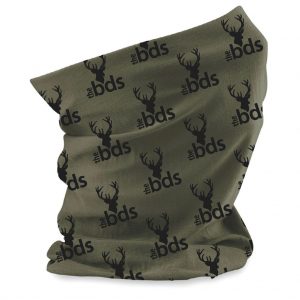Donate Today
For drivers, for deer, help us to change the story.
£5 will help pay for advising relevant agencies on installing additional, high-impact signage in collision hotspots during the peak periods of deer vehicle collisions.
£10 will help run frequent awareness raising campaigns to drivers at peak-risk times in collision hotspots.
£15 or more will contribute towards initiating long-term, high-impact activities across the whole of the UK that will help to:
• get 100’000s driving more deer aware;
• introduce more mitigation measures in hotspot areas;
• investigate and trial new mitigation measures;
• increase the number of trained and correctly equipped volunteers who are able to help the police and public with deer that are fatally injured and suffering at the roadside after a collision;
• improve and expand existing reporting schemes so that areas and roads with the highest collision rates can be prioritised each year.

Donate Today
For drivers, for deer, help us to change the story.
£5 will help pay for additional, high-impact signage to be installed in collision hotspots during the peak periods of deer vehicle collisions.
£10 will help run frequent awareness raising campaigns to drivers at peak-risk times in collision hotspots.
£15 or more will contribute towards initiating long-term, high-impact activities across the whole of the UK that will help to:
• get 100’000s driving more deer aware;
• introduce more mitigation measures in hotspot areas;
• investigate and trial new mitigation measures;
• increase the number of trained and correctly equipped volunteers who are able to help the police and public with deer that are fatally injured and suffering at the roadside after a collision;
• improve and expand existing reporting schemes so that areas and roads with the highest collision rates can be prioritised each year.

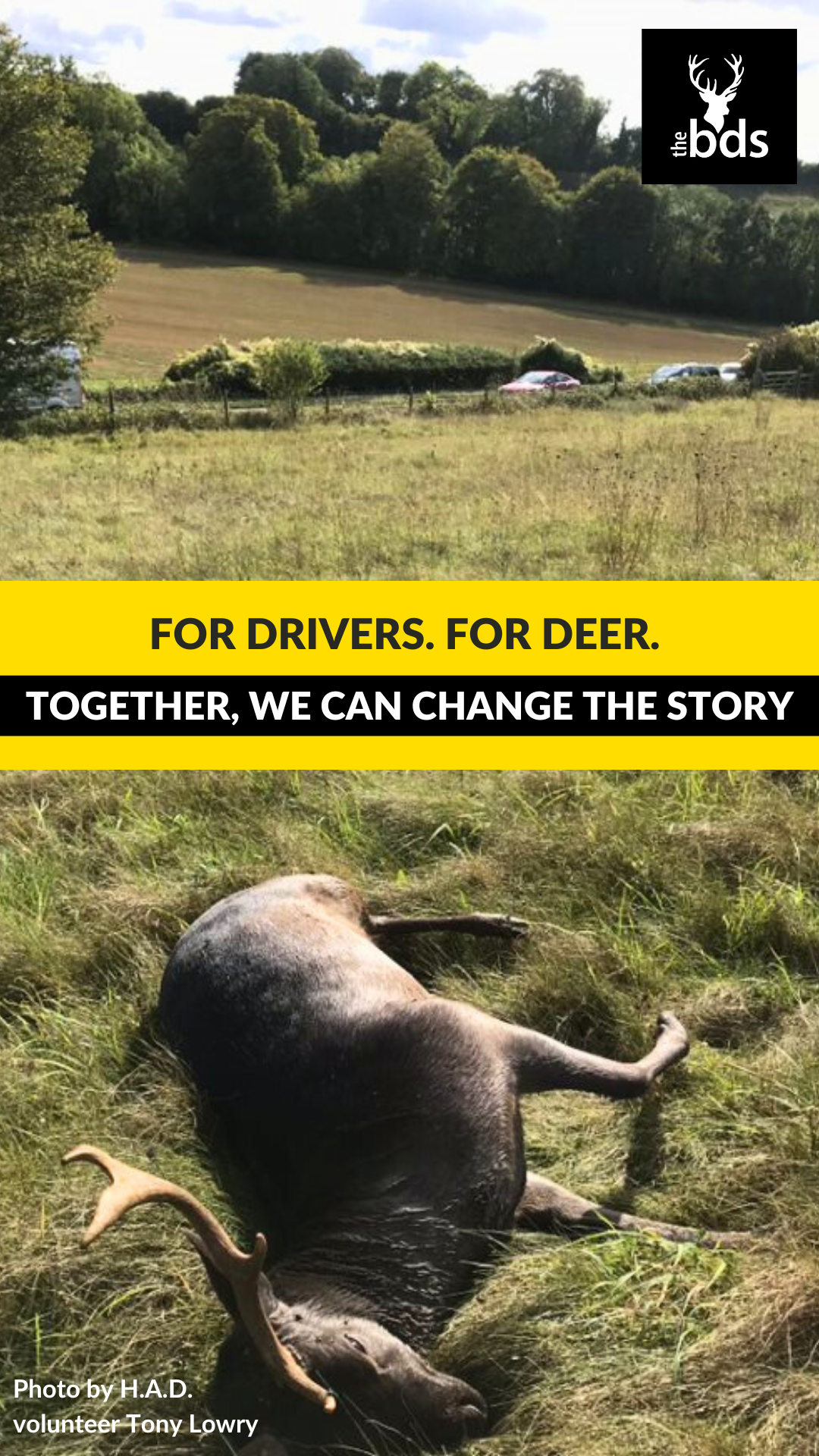
115 TIMES A DAY
A VEHICLE AND A DEER COLLIDE ON BRITAIN'S ROADS
Results from a report in 2011 estimated that there are between 42,000 to 74,000 deer vehicle collisions (DVCs) a year in Britain.
That’s a MINIMUM of 115 collisions per day.
Of these daily impacts:
• 1-2 cause injury, serious injury or fatality to a person involved.
• 28-35 result in a deer suffering at the roadside, incapacitated and highly stressed until they can be humanely dispatched.
• The rest tend to kill the deer outright, or fatally wound them – allowing them to run, only to succumb to their wounds later.
Although the report showed physical injury to people is fortunately quite rare – the mental trauma, especially for anyone experiencing a deer smashing into their windscreen or a deer trapped half-alive under their car – is likely to be substantial.
Long-story short is:
Deer meets car…there’s never a happy ending.
But your gift today can help change this story.
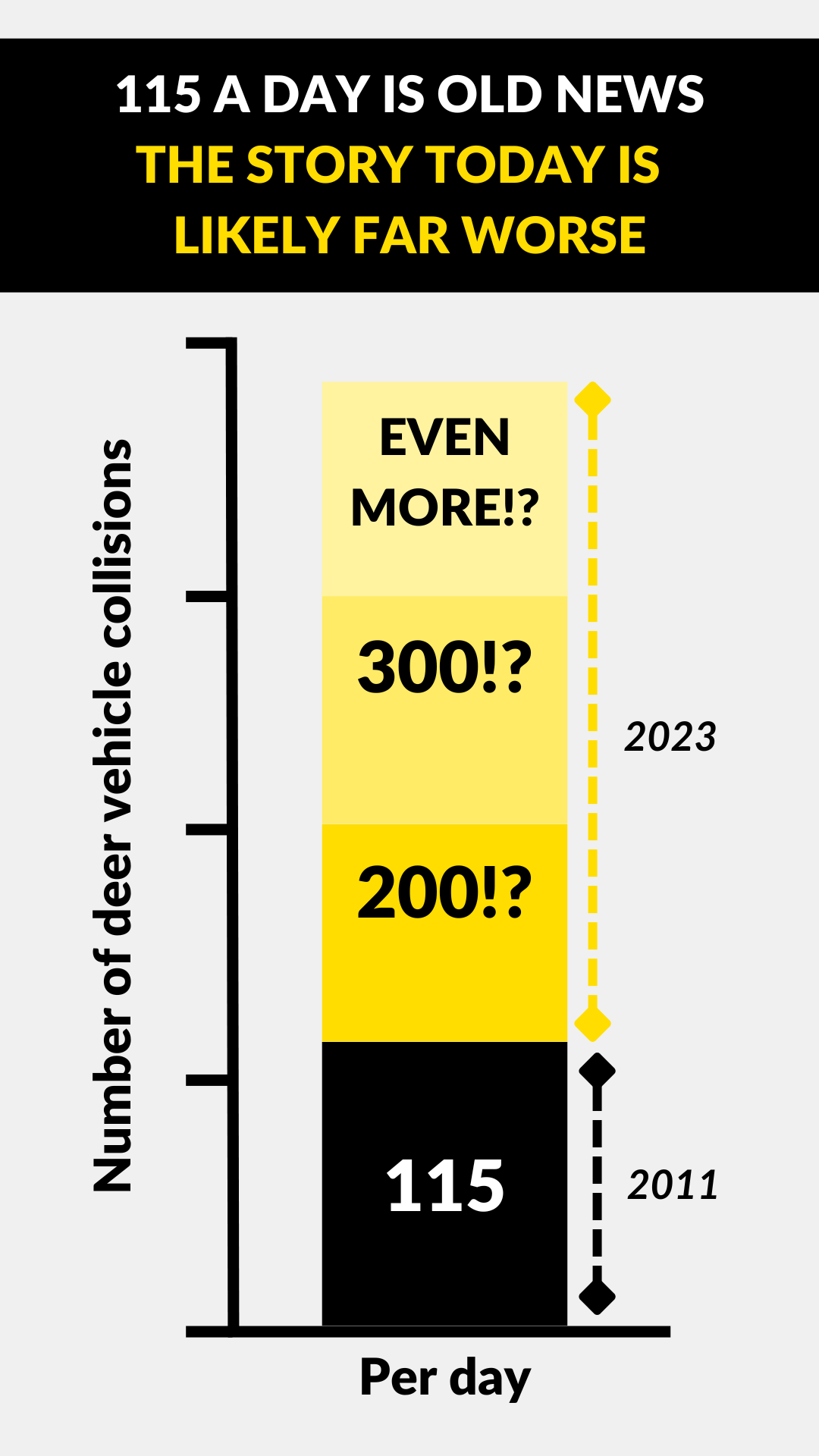
ACROSS THE UK, THERE ARE NOW MORE DEER, MORE CARS, MORE ROADS & MORE TRAFFIC THAN EVER BEFORE
A large majority of deer road kills and deer vehicle collisions are not reported. This means the estimate of 115 collisions per day likely falls far short of the true number.
On top of that, we are now over a decade on since the original report.
In the last 10 years:
• wild deer numbers are estimated to have grown by half-a-million,
• at least 3 million more cars have been added to the UK’s roads,
• total road length has increased by nearly 3000 miles, and,
• road use has increased by 35 billion vehicle miles.
Long-story short is:
The number of deer vehicle collisions is likely worse now than it has ever been before. It is probably far higher than the 10-year-old estimate of 115-202 collisions per day.
If we don’t start to change this story together now, the costs of these collisions to both drivers and deer are going to become substantial.
For drivers, for deer, you can help change the story by supporting our dedicated appeal today.
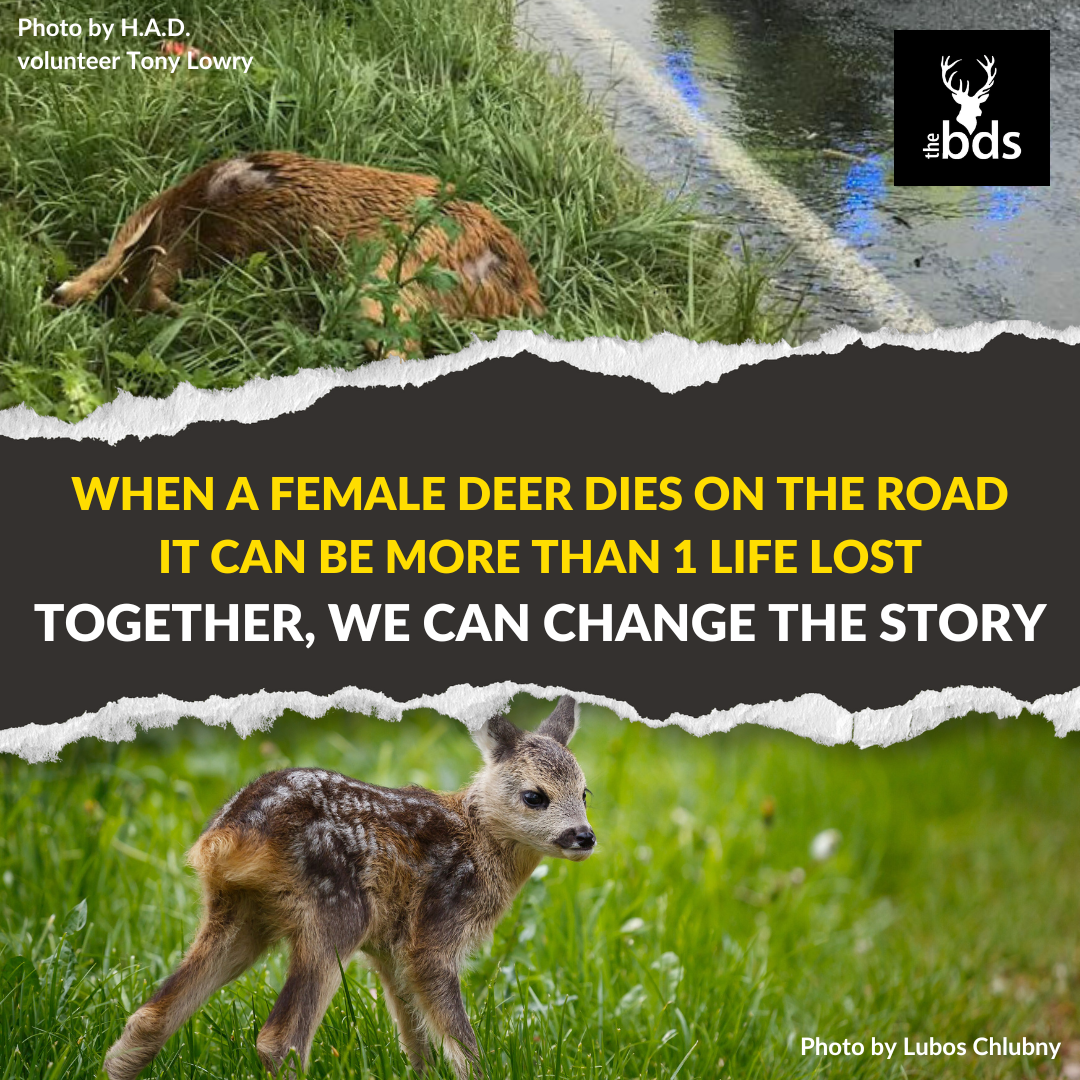
SADLY, THE STORY DOESN'T ALWAYS END ON THE ROAD
The 2011 report identified two times of year when deer vehicle collisions are at their worst: May and October.
Unfortunately, May is also the start of the birthing season for roe, sika and red deer, and also for water deer.
Sadly, this means for many of the female deer that are killed on a road each May, their new-borns are left behind to starve to death.
Your support for this appeal today can help us work to prevent this from happening.
Help change the story for baby deer this coming spring.
HOW WILL YOUR DONATION HELP CHANGE THE STORY?
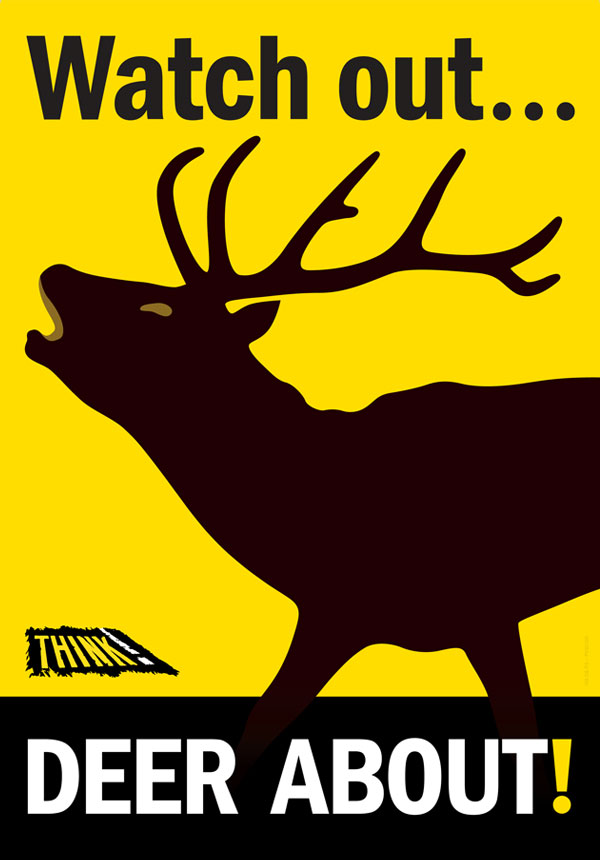
1. IT WILL HELP COOL KNOWN HOTSPOTS
Initial donations towards this appeal will be used to help make an immediate impact on deer vehicle collision rates in several known hotspot locations and in known ‘hot-periods’ (October and May) – when collisions are known to be at their highest.
Starting this October, your donation will help us to:
• install more high-impact warning signs for drivers;
• run frequent awareness campaigns to drivers on local radio stations during the most at-risk times of day (mornings and evenings);
• initiate targeted media campaigns to inform drivers in hotspot areas how to drive more deer aware and what to do if they do hit a deer;
• initiate awareness raising activities about deer welfare work done by Humane Animal Dispatch (H.A.D.) volunteers to help prevent prolonged deer suffering after a collision;
• purchase key equipment for H.A.D. volunteers that will enable them to work safely and efficiently.
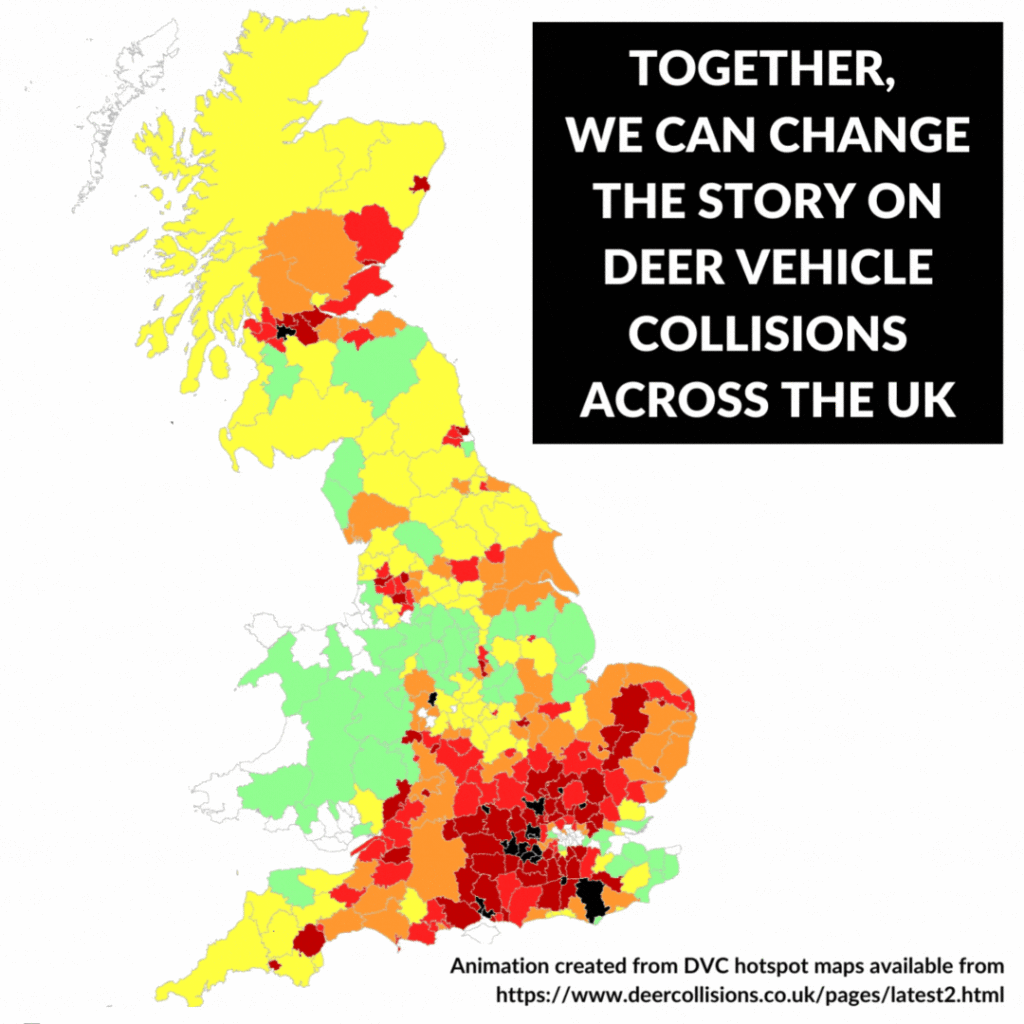
2. IT WILL HELP REDUCE COLLISIONS UK-WIDE
Ongoing donations towards this appeal will be used to help continue work in known hotspot areas and to initiate activities that will help prevent drivers and deer meeting across the whole of the country – both now and well into the future.
Your ongoing support to this appeal will help us to:
• investigate and trial a wider range of mitigation measures;
• get deer featured as a specific hazard during the driving theory and hazard perception tests;
• improve and expand existing reporting schemes to help identify new hotspot areas as they arise;
• train and equip more H.A.D. volunteers;
• investigate the potential of a hotline number that can offer quick support to drivers as well as welfare advice and support for any deer that has been injured in a collision;
• initiate further research on deer vehicle collisions
ALL FOR ONE, ONE FOR ALL: THE EXTRA BENEFIT OF YOUR DONATION
“The extent of roadkill is far more shocking than we’d previously imagined"
Recent research (Moore et al. 2023) has indicated that collisions with vehicles on the road was the most common cause of death in almost a third (28%) of the 150 mammal populations in the 22 countries studied.
For 3 species classed as endangered by the International Union for Conservation and Nature (IUCN): African Wild Dogs, Tasmanian Devils, and Iberian Lynx; between 38-80% of the populations studied were killed on roads. Yes – that means in some locations, nearly the entire population of an endangered species is being wiped out on roads.
For the 2 studies from the UK that were included in the research, it was found that 29% of polecat mortalities and 25% of hedgehog mortalities were due to roads. Roughly 9% of the total UK hedgehog population is therefore being killed on roads.
The findings of the research even led the lead researcher Lauren Moore, of Nottingham Trent University’s School of Animal, Rural and Environmental Sciences, to state that: “The extent of roadkill is far more shocking than we’d previously imagined and it is clear that it is implicated in a possible tipping point for some wild populations.”
(Source: N. Marshall, 18th March 2023, Yahoo News)
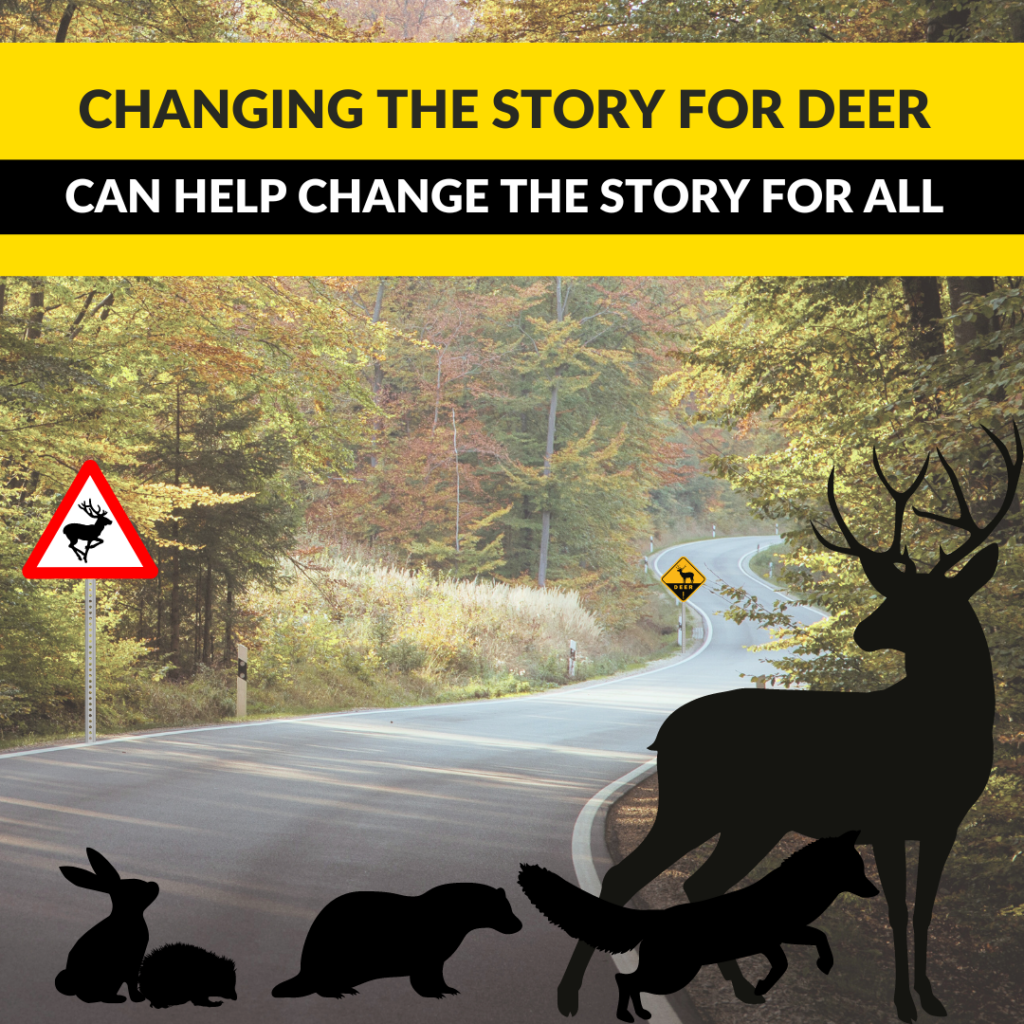
CHANGING THE STORY FOR ALL
By helping us change the story for deer, you could also help change the story for other wildlife in the UK and across the world.
Any and all activities to reduce deer collisions will likely have a knock-on positive effect for other wildlife in the UK. Wildlife-friendly crossings and bridges especially.
Activities that are highly successful in reducing collision rates for deer, can also then be applied to help reduce mortality for other species across the world.
By adding your support today, you can help change the story for more than deer.
PREFER TO DONATE OFFLINE?
By post: Send a cheque to our head office at The British Deer Society, The Walled Garden Burgate Manor, Fordingbridge, Hampshire SP6 1EF. Please make cheques payable to The British Deer Society.
LEARN MORE ABOUT DEER VEHICLE COLLISIONS (DVCs)
Monitoring reported deer road casualties and related accidents in England to 2010. Report to The Highways Agency prepared by Jochen Langbein. (Deer Initiative Ltd. 2011). Full report available here.
Useful websites: deeraware.com | deercollisions.co.uk | deerinitiative.co.uk



